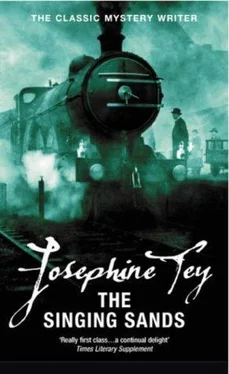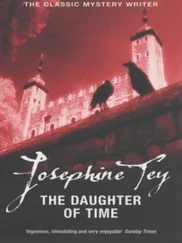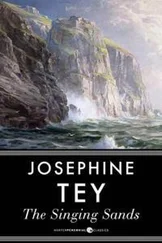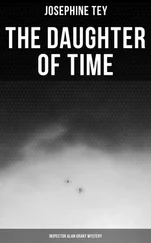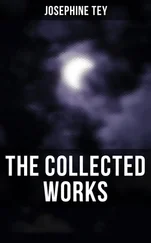‘Hah! Dust-bowl stuff,’ remarked Mr Cullen. ‘It hasn’t a moat, by any chance?’
‘No. Why?’
‘I must see a moat before I go back to OCAL.’ And then, after a pause, ‘I’m really very worried about Bill, Mr Grant.’
‘Yes, it is certainly very odd.’
‘That was nice of you,’ Mr Cullen said unexpectedly.
‘What was?’
‘Not to say: “Don’t you worry, he’ll turn up all right!” I can hardly keep my hands off people who say: “Don’t you worry, he’ll turn up.” I could strangle them.’
Moymore Hotel was a tiny version of Kentallen, without the turrets. But it was whitewashed and cheerful, and the trees behind it were coming into leaf. In the little flagged entrance-hall Mr Cullen hesitated.
‘In Britain I notice people don’t ask you up to their hotel bedroom. Would you like to wait in the sitting-room, perhaps?’
‘Oh, no; I’ll come up. I don’t think we have any feeling about hotel bedrooms. It is probably just that our hotel sitting-rooms are so near our bedrooms that there is no need to go up, and so we don’t suggest it. When a public lounge is a day’s journey from your own room it is easier to take a guest with you, I suppose. That way you are at least in the same hemisphere.’
Mr Cullen had a front room, looking across the road to the fields and the river and the hills beyond. With his professional eye Grant noticed the log fire ready-laid in the hearth and the daffodils in the window: Moymore had standards; with his personal mind he was concerned for this Tad Cullen, who had interrupted his leave and come to the wilds of Caledonia to find the friend who meant so much to him. A foreboding that he could not shake off had grown in him with every step of the way to Moymore, and now it filled him to the point of nausea.
The young man took a letter-case from his travelling-bag and opened it on the dressing-table. It contained practically everything but the wherewithal for writing letters. Among the mess of papers, maps, travel folders and what not, there were two leather articles: an address-book and a pocket-book. From the pocket-book he took some photographs and riffled through the feminine smiles until he found what he was looking for.
‘Here it is. I’m afraid it isn’t a very good one. It’s just a snapshot, you see. It was taken when a crowd of us were at the beach.’
Grant took the proffered piece of paper, almost reluctantly.
‘That’s—’ Tad Cullen was beginning, lifting his arm to point.
‘No, wait!’ Grant said, stopping him. ‘Let me see if I—if I recognise anyone.’
There were perhaps a dozen young men in the photograph, which had been taken on the verandah of some beach-house. They were clustered round the steps and draped over the rickety wooden railing in various stages of deshabille . Grant swept a swift glance over their laughing faces and was conscious of a great relief. There was no one there that he had ever—
And then he saw the man on the bottom step.
He was sitting with his feet pushed away from him into the sand, his eyes screwed up against the sun and his chin tilted back a little as if he had been in the act of turning to say something to the men behind. It was just so that his head had been tilted back against the pillow in Compartment B Seven on the morning of the 4th of March.
‘Well?’
‘Is that your friend?’ Grant said, pointing to the man on the bottom step.
‘Yes, that’s Bill. How did you know? Have you met him somewhere, then?’
‘I–I’m inclined to think that I have. But of course, on that photograph, I could hardly swear to it.’
‘I don’t want you to do any swearing. Just give me a general weather report. Just tell me roughly when and where you saw him and I’ll track him down, don’t you be in any doubt about it. Do you know where you met him? I mean, do you remember?’
‘Oh, yes. I remember. I saw him in a compartment—a sleeping-berth compartment—of the London mail when it was running into Scoone early in the morning of the 4th of March. That was the train I came north on.’
‘You mean Bill came here ? To Scotland? What for?’
‘I don’t know.’
‘Didn’t he tell you? Did you talk to him?’
‘No. I couldn’t.’
‘Why not?’
Grant put out his hand and pushed his companion gently backwards so that he sat down in the chair that was behind him.
‘I couldn’t because he was no longer alive.’
There was a short silence.
‘I’m truly sorry, Cullen. I wish I could pretend to you that it might not be Bill, but short of going into a witness-box on oath I am prepared to back my belief that it is.’
After another little silence Cullen said: ‘Why was he dead? What happened to him?’
‘He had had a fair load of whisky and he fell backwards against the solid porcelain wash-basin. It fractured his skull.’
‘Who said all this?’
‘That was the finding of the coroner’s court. In London.’
‘In London? Why in London?’
‘Because he had died, according to the post-mortem, very shortly after leaving Euston. And by English law, a sudden death is investigated by a coroner and a jury.’
‘But all that’s just—just supposition,’ Cullen said, beginning to come alive and be angry. ‘If he was alone, how can anyone tell what happened to him?’
‘Because the English police are the most painstaking creatures as well as the most suspicious.’
‘Police? There were police in on this thing?’
‘Oh, assuredly. The police do the investigating and report in public to the coroner and his jury. In this case there had been the most exhaustive examination and tests. They knew in the end almost to a mouthful how much neat whisky he had drunk, and at what intervals before his—his death.’
‘And that about his falling backwards—how could they know that?’
‘They went prowling with microscopes. The oil and broken hair were still evident on the edge of the basin. And the skull injury was consistent with a backwards fall against just such an object.’
Cullen calmed down at this, but he looked disorientated.
‘How do you know all this?’ he asked, vaguely; and then with growing suspicion: ‘How did you come to see him anyway?’
‘When I was on my way out I came across the sleeping-car attendant trying to rouse him. The man thought he was just sleeping it off, because the whisky bottle had rolled all over the floor and the compartment smelt as if he had been making a night of it.’
This did not satisfy Tad Cullen. ‘You mean that was the only time you saw him? Just for a moment, lying—lying dead there, and you could recognise him from a snapshot—a not very good snapshot—weeks later?’
‘Yes. I was impressed by his face. Faces are my business; and in a way my hobby. I was interested in the way the slant of the eyebrows gave the face a reckless expression, even—even as it was, without any real expression whatever. And the interest was intensified in a way that was quite accidental.’
‘What was that?’ Cullen was not giving an inch.
‘When I was having breakfast, in the Station Hotel at Scoone, I found that I had picked up by accident a newspaper that had been tumbled off the berth when the attendant was trying to waken him, and in the Stop Press—the blank space, you know—someone had been pencilling some lines of verse. “The beasts that talk, the streams that stand, the stones that walk, the singing sand—” then two blank lines, and then: “that guard the way to Paradise.”’
‘That was what you advertised about,’ Cullen said, his face growing momentarily blacker. ‘What was it to you that you went to the trouble of advertising about it?’
‘I wanted to know where the lines came from if they were lines from some book. If they were lines in the process of being made into a poem, then I wanted to know what the subject was.’
Читать дальше
